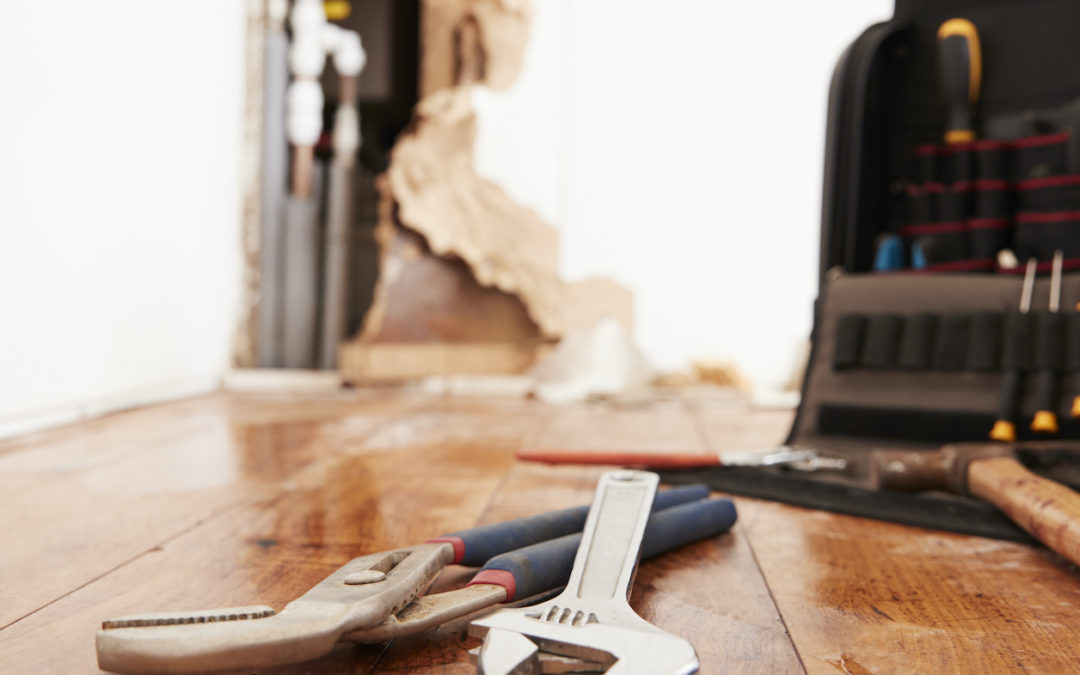Daryl Arendt, our office manager and senior insurance broker, shares tips on insurance and sewer backups. Further, how you can prevent water in your basement!
Insurance and Sewer Backups
Some of these words immediately conjure up a knot in the pits of our stomachs:
- Account past due
- Insufficient funds
- Liver and onions
- Sewer Backup
Now, we can’t deal with your liver and onion issues. However, Regina insurance brokers Campbell & Haliburton can help you navigate through a sewer back up.
There are many different ways that water can get into your basement. It can back up through the sewer system (either clean water or grey water). It can seep in through cracks in the basement. Further, it can gush in because of a torrential downpour.
Some of these may be covered by your insurance policy, others might not. As always, we recommend talking with your insurance broker before something happens. It is always better to have these discussions in advance of a loss, not after!
Spoiler alert, we cannot guarantee that you never get water in your basement but we can give you some tips to help prevent it and also some direction of what to do in the event of a loss.
An Ounce of Prevention is Worth… A Shop Vac of Cure
A number of years ago I purchased a shop vac. Why? Well, not for its snazzy orange colour, I can assure you. I purchased it because I had water in my basement, and lots of it. Thankfully, it was clear water, not the grey sewer water. But still, water, nonetheless. Dealing with this problem was many things, but fun was not one of them.
So, what can you do that will help reduce the likelihood of water in the basement? There are a number of things. Some of them are quite simple and others are somewhat more involved. However, all are worth doing.
Steps to Reduce Water in The Basement
Disconnect all downspouts from your basement sewer system.
Some older homes in Regina still have downspouts connected to their weeping tile or sewer system. We recommend that you disconnect them from your home’s sewer system. In the event of a heavy downpour, you must do everything to take off the strain from your sewer system. Further, some insurance companies in Saskatchewan may not want to provide you with sewer back up coverage if your downspouts are still connected to the sewer system.
Extend all your downspouts away from your home.
In this case, more is better. If you move water away from your home, it can help keep it away from your foundation. Let it water your yard, just not your basement! A quick trip to one of the many DIY stores can provide you with some good extensions.
Make sure that your eavestroughs and downspouts are kept clear of debris.
Isn’t it amazing how quickly and easily twigs, leaves and just plain old gunk can accumulate in the eavestroughs? This is not a difficult fix, nor is it a costly fix. However, it does require some time and effort on your part. Now, what if you, like me, are not a fan of ladders? What if the thought of being up on a ladder for any period of time is frightening? Well, you may want to look at hiring someone to do it for you. If you do, we recommend that they have commercial general liability to cover this.
Check the grading around your home.
This is a big one! We had grading around our home. Unfortunately, the ground sloped down toward the home instead of away from it. I should mention we had smooth patio blocks, making a smooth runway leading right to our home. Needless to say, we dealt with this. Eight yards of clay, a few days of backbreaking labour, and some ibuprofen fixed the problem.
Have cracks in your basement walls, foundations and floors professionally repaired.
Fill all gaps in your basement walls, around windows, doors and entry points for pipes and cables. This is way beyond my field of expertise. So, I recommend a professional. Do you need a quality person to do the job? Contact Steve at AAA Solid Foundations.
Reduce the use of water in your home during heavy rainfalls.
The reason here is similar to not having your downspouts connected to the sewer system. During heavy rainfalls you want to do whatever you can to keep the sewer system operating as efficiently as possible. Therefore, keeping excess water out of the drains is a good idea.
If your home has a sump pump, ensure that it is in good working order.
Back when we had our water issues, we did have a sump pump. Unfortunately, it was old and not working. Well, I learned that the hard way. Sure, a sump pump costs a couple of hundred dollars. However, the time and stress it saves is worth far more than that.
Make sure that your sewer line is in good working order.
Over time, lines can collapse, disintegrate or be torn apart by tree roots. None of these are positive things! Whatever you can do to prevent them will be of benefit to you.
Here are a few things you can do:
- Check to see that your line is free of debris and in good working condition.
- If your line needs to be replaced, do so.
- Have a professionally installed backwater valve installed.
- Ensure that your backwater valve is maintained and in good working order. It is not enough to have the valve installed. Keep it well maintained and in good working order.
So Where Do You start?
If you are looking for some reputable people to assist we recommend you talk to our friends at
We also recommend that you purchase service line coverage if you have not done so. Contact us and we can discuss this with you!
Finally, be careful what you store in the basement and how you store it. It might be wise to not have your valuable family heirlooms on the basement floor. Consider using some plastic or rubber containers and raise them up off of the floor.
I Did All That… I Still Have Water
- First off, do not panic. You will get through this. It will not be pleasant. But you will get through it.
- Give our office a call: (306) 757-1500. We can walk you through the next steps. We will get a claim going for you if you have coverage. Further, we will offer you some hands-on advice and a listening ear.
- Make a list, take photographs, or make a video of what was damaged. This will help you when you are talking with your adjustor.
- Do not throw things out. If you are able to, put the damaged items in a safe place so that the adjustor can see them. Move them to a dry area with good ventilation.
- Clean up as soon as possible. You may want to call a disaster restoration company to assist. There are a couple of reasons for this. First, let’s be honest, this is not very enjoyable experience. Most of us don’t want to be going through such a mess. However, the bigger reason is that professionals know how to clean and to do so safely. They know how to prevent mould and how to clean without getting sick from the damage.
- Do not touch your electrical systems or panel until it is safe to do so.
Now what? Some Parting Thoughts
- Give your insurance broker a call today, even if nothing has happened. Make sure you know what your policy covers and what it does not.
- Take whatever preventive measures you can prior to something happening.
- Finally, take a deep breath and pour a cup of coffee. You have prepared as best as you can. Now continue to enjoy all the good things that life offers.

